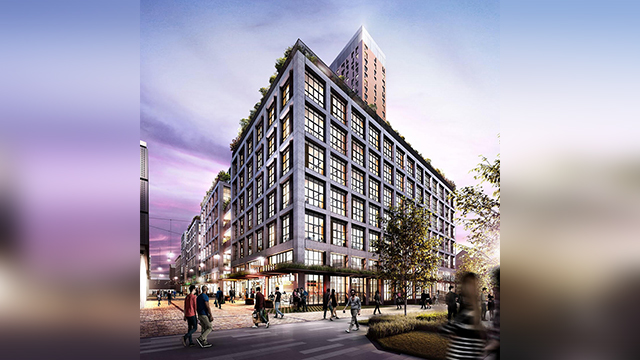Budget bingo: what got left out of Rishi Sunak’s spring statement?
Rishi Sunak’s spring Budget was one of the most far-reaching in modern times. Not only did the chancellor outline an eye-watering £65bn in extra spending, but he also planned tax rises further down the line that will leave Britain with its highest tax burden – 35% of GDP – since the 1960s.
In amongst all this, observers could be forgiven if they failed to notice that some much-discussed proposals were conspicuous by their absence – particularly for the property industry.
For those who were not playing Budget bingo yesterday afternoon, here’s a run through of the policies that didn’t make the cut.
Rishi Sunak’s spring Budget was one of the most far-reaching in modern times. Not only did the chancellor outline an eye-watering £65bn in extra spending, but he also planned tax rises further down the line that will leave Britain with its highest tax burden – 35% of GDP – since the 1960s.
In amongst all this, observers could be forgiven if they failed to notice that some much-discussed proposals were conspicuous by their absence – particularly for the property industry.
For those who were not playing Budget bingo yesterday afternoon, here’s a run through of the policies that didn’t make the cut.
Capital gains tax hike
Investors will have breathed a sigh of relief when a predicted rise in capital gains tax failed to materialise in yesterday’s speech. CGT is paid when assets, such as shares or property, are sold at a higher price than they were originally bought. Many had expected Sunak to raise the 20% rate to bring it into line with income tax rates.
But it did not show up – at least not this time around. CGT thresholds may have been frozen until 2026, but experts still expect an overhaul in the future, after Sunak commissioned a review into the tax by the government’s Office for Tax Simplification last year. Nonetheless, Michael Cook, national lettings managing director at LRG, said it was “great news”.
“The increase in CGT would have dramatically reduced the supply of rental properties and could have prompted a large number of landlords selling up in order to beat any CGT deadlines and thereby ousting tenants from their homes,” he said.
Evictions ban on commercial tenants
There was welcome news for landlords too, with no extension to the ban on evicting commercial tenants. The policy, which is set to end on 31 March, has effectively stopped landlords from evicting occupiers who are unable to pay rent since the start of the pandemic.
David Haines, a partner at law firm Charles Russell Speechlys, said that with commercial rent arrears estimated to be at around £4.5bn, any further extension “would have simply postponed the inevitable, effectively kicking the can down the road, by which time unpaid arrears would have been greater and some businesses less likely to be able to recover”.
However, Wasim Khan, partner and head of London real estate at law firm Norton Rose Fulbright, added that there was still a chance of this changing, with the moratorium ending before many retailers are legally allowed to begin trading again. “Many will be calling for the government to provide further urgent clarity on whether their situation could change drastically at the end of this month,” he said.
Build-to-rent feeling left out
While the Budget included several boosts for homebuyers, build-to-rent industry bosses have said too little attention was given to helping the private rented sector.
The mortgage guarantee and stamp duty extension through to the summer left many BTR leaders feeling that the government is more focused on homebuyers than making renting better – despite the fact that there will likely be more renters than buyers within years.
Richard Simpson, chief executive of Watkin Jones, said the recovery “will require more than a short-term boost and drive for home ownership”.
He added: “For towns and cities to thrive, they will have to offer a diverse and adaptable retail, social and living experience that recognises the cultural changes over the last 30 years.
“Levelling up sustainable urban centres can only be achieved with more balanced rhetoric that recognises and encourages high-quality rental homes as part of the UK’s housing culture.”
Business rates reform
Several weeks ago it was announced that a government-commissioned report on the review of business rates would be delayed until the autumn, after it was originally pencilled in for this spring. However, some retailers were still hoping there would be a nod to it in the Budget – which did not transpire.
Sunak sweetened the deal by extending business rates relief until the end of June. After that, firms will get a two-thirds reduction on rates until 31 March next year. This later relief is capped at £2m per business, which means that large companies will not benefit, and it applies only to firms that were forced to shut in January’s lockdown.
But many see it as a short-term fix to a much bigger problem. John Webber, head of business rates at Colliers International, said: “Whilst we were already disappointed that the chancellor had delayed the business rate review until the autumn, we had hoped there would have been something more to say today – it has been disappointing that yet again he has failed to grab this opportunity.
“Only skimming the surface on this issue will have dire consequences for many struggling businesses across the board.”
To send feedback, e-mail alex.daniel@egi.co.uk or tweet @alexmdaniel or @estatesgazette
Image by Alejandro Garay from Pixabay











